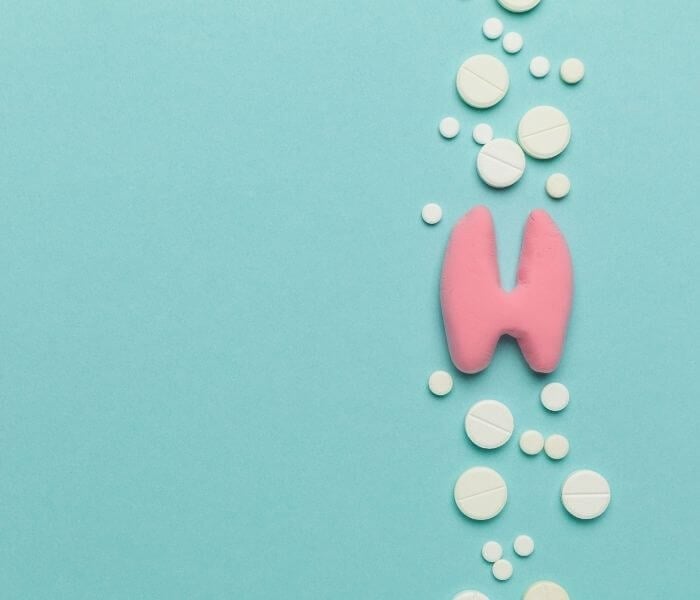4 mins read
Thyroid Tests At Home – Which Are Best?

This article explains how to avoid nutritional deficiencies while on a vegan diet and how to ensure you get enough protein and vitamin B12 – two nutrients vegans are at risk of being deficient.
Health Benefits Of A Vegan Diet
There are health benefits of a vegan diet, for example vegans tend to have:
- Lower cholesterol levels
- A lower risk of heart disease
- Lower blood pressure
Research shows that being vegan may be healthier but may not necessarily make you live longer. However, by being vigilant and planning your meals you reduce your risk of developing nutritional deficiencies.
How To Get Protein On A Vegan Diet
Our bodies require protein for several functions within the human body. For example, it is essential for the growth of cells, tissues, and muscles as well as the synthesis of hormones and antibodies.
Certain individuals may require an increased protein intake like endurance athletes and weightlifters. Plus, there is some evidence suggesting we may all benefit from an increased consumption of protein as we get older.
It is vital vegans get the right amount of protein, too. Although there is a common misconception that most protein comes from meat or animal sources, there are plenty of vegan-friendly plant protein sources available.
Protein makes up around 17% of the body’s total weight. The reference nutrient intake (RNI) for protein is 0.75g of protein per kilogram body weight per day. On average, this equates to approximately 56 g/day for men and 45 g/day for women.
However, if the excess protein is eaten it can be used as an energy source, but carbohydrates and fats should be the body’s main energy source.
Vegan diet protein sources include:
- Soya
- Tofu – 100g of tofu provides 8g of protein
- Chickpeas – 100g of chickpeas provides 7g of protein
- Beans
- Nuts – 6 almonds provide 3g of protein and 3 whole walnuts provide 3g of protein
- Seeds – 1 tablespoon of hemp seeds provides 5g of protein and one tablespoon of pumpkin seeds provides 4g of protein
- Lentils – 100g of lentils provides up to 9g of protein
- Quinoa – 100g of quinoa will provide 4g of protein
Following a vegan diet is healthy but can present some challenges. Vegan diets tend to be lower in calories, protein, calcium, iodine, and vitamin B12 compared to diets consisting of a mixture of animal and plant-based sources. However, vegan diets contain higher amounts of fibre, carbohydrates, and micronutrients.
How To Get Vitamin B12 On A Vegan Diet
Despite the health benefits of a vegan diet, vegans are at an increased risk of developing vitamin B12 deficiency because of the lack of animal and dairy sources.
Plant-based sources of vitamin B12 are relatively rare, but it is vital we all get the right amount because a deficiency can lead to irreversible neurological impairment.
Vitamin B12 is essential for the formation of blood cells, neurological function as well as myelination and maintenance of the nervous system. Usually, the body has enough vitamin B12 stored to last 30 years, however, this can deplete relatively quickly if the intake is low or non-existent.
Vitamin B12 is found naturally in animal products, including:
• Fish
• Meat
• Milk
• Dairy products
• Eggs
Therefore, it can be difficult for individuals following a vegan diet to ensure they are getting an adequate intake of the vitamin. There are, however, some limited plant sources of B12.
Vegan Diet B12 Sources Are:
- Fortified foods
- Milk alternatives
- Vegan spreads
- Breakfast cereals
- Yeast extract
Vegans can help to make sure they are getting enough B12 in their diet by eating examples of these foods twice per day, aiming for a daily intake of 3 micrograms from these sources.
Supplementation is also key to avoiding deficiency. According to The Vegan Society, vegans should also supplement their diet with at least 10 micrograms of vitamin B12 daily. Although this amount may seem large, no toxic effects have been associated with increased B12 intakes.
How Do Vegans Avoid Nutritional Deficiencies?
It’s now easier for vegans to reduce the risk of nutritional deficiencies because the market is now more accommodating and versatile. There are many examples of fortified foods, dietary supplements, and ready prepared vegan foods available to buy.
To avoid nutritional deficiencies on a vegan diet it is essential to:
- Eat 5 portions of fruits and vegetables every day
- Replace dairy products with alternatives such as soya drinks/milk
- Include beans, pulses and other plant-based proteins into the diet
- Include starchy carbohydrates as the base of your meals like potatoes, pasta and rice
- Keep yourself hydrated with 6-8 glasses of water/fluid per day
Check your nutrient levels with our Nutricheck Test, a simple at home finger prick blood test.
- Health scores calculated
Close
This information has been medically written by Dr Thom Phillips
Thom works in NHS general practice and has a decade of experience working in both male and female elite sport. He has a background in exercise physiology and has published research into fatigue biomarkers.

Dr Thom Phillips
Head of Clinical Services
Related articles
Like this article? Here are some more based on similar topics.





